38227 - Surah An-Naml



 _______________________________________________
_______________________________________________
MEMORIZATION TABLE :

![]() : Selasa : H : 399-400
: Selasa : H : 399-400 
Rabu : V : 481-482
_______________________________________________
_______________________________________________
_______________________________________________
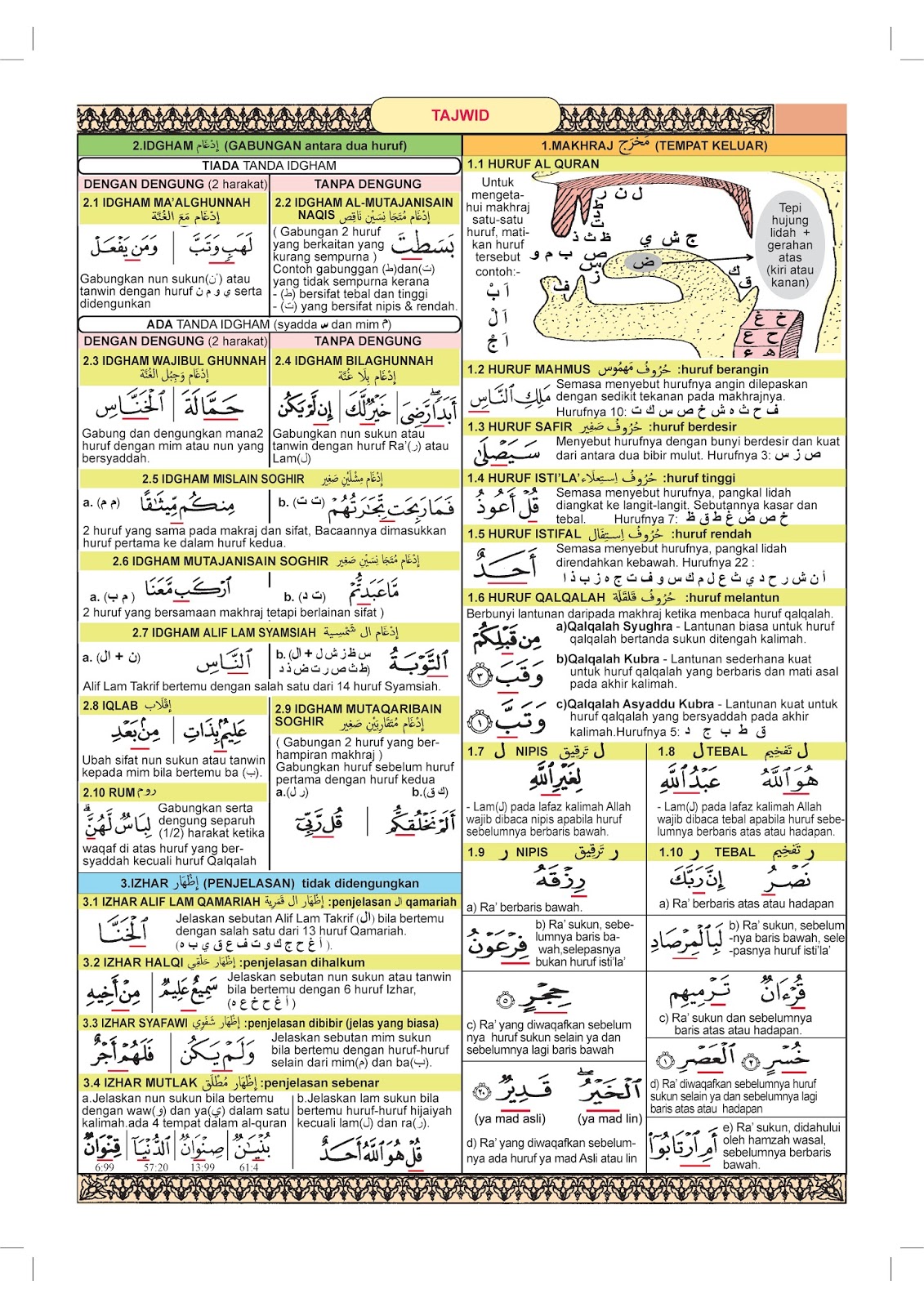

_______________________________________________
_______________________________________________
_______________________________________
Tafsir Muyassar تفسير المیسر
Saheeh International
Basmeih
Ma Jian
E......ARABIC : ENGLISH : MALAY : CHINESE
Tafsir Muyassar تفسير المیسر : Saheeh International : Basmeih : Ma Jian
_____________________________________________
Celik Tafsir
Tafsir Surah Naml Ayat 56 – 60 (Allah selamatkan orang beriman)
_____________________________________________
Tafsir Muyassar : تفسير المیسر
٥٦ فَمَا كَانَ جَوَابَ قَوْمِهِ إِلَّا أَنْ قَالُوا أَخْرِجُوا آلَ لُوطٍ مِنْ قَرْيَتِكُمْ ۖ إِنَّهُمْ أُنَاسٌ يَتَطَهَّرُونَ
٥٦ فما كان لقوم لوط جواب له إلا قول بعضهم لبعض: أَخْرجوا آل لوط من قريتكم، إنهم أناس يتنزهون عن إتيان الذكران. قالوا لهم ذلك استهزاءً بهم.
٥٧ فَأَنْجَيْنَاهُ وَأَهْلَهُ إِلَّا امْرَأَتَهُ قَدَّرْنَاهَا مِنَ الْغَابِرِينَ
٥٧ فأنجينا لوطًا وأهله من العذاب الذي سيقع بقوم لوط، إلا امرأته قدَّرناها من الباقين في العذاب حتى تهلك مع الهالكين؛ لأنها كانت عونًا لقومها على أفعالهم القبيحة راضية بها.
٥٨ وَأَمْطَرْنَا عَلَيْهِمْ مَطَرًا ۖ فَسَاءَ مَطَرُ الْمُنْذَرِينَ
٥٨ وأمطرنا عليهم من السماء حجارة مِن طين مهلكة، فقَبُحَ مطر المنذَرين، الذين قامت عليهم الحجة.
٥٩ قُلِ الْحَمْدُ لِلَّهِ وَسَلَامٌ عَلَىٰ عِبَادِهِ الَّذِينَ اصْطَفَىٰ ۗ آللَّهُ خَيْرٌ أَمَّا يُشْرِكُونَ
٥٩ قل -أيها الرسول-: الثناء والشكر لله، وسلام منه، وأَمَنَةٌ على عباده الذين تخيرهم لرسالته، ثم اسأل مشركي قومك هل الله الذي يملك النفع والضر خير أو الذي يشركون من دونه، ممن لا يملك لنفسه ولا لغيره نفعًا ولا ضرًا؟
٦٠ أَمَّنْ خَلَقَ السَّمَاوَاتِ وَالْأَرْضَ وَأَنْزَلَ لَكُمْ مِنَ السَّمَاءِ مَاءً فَأَنْبَتْنَا بِهِ حَدَائِقَ ذَاتَ بَهْجَةٍ مَا كَانَ لَكُمْ أَنْ تُنْبِتُوا شَجَرَهَا ۗ أَإِلَٰهٌ مَعَ اللَّهِ ۚ بَلْ هُمْ قَوْمٌ يَعْدِلُونَ
٦٠ واسألهم مَن خلق السموات والأرض، وأنزل لكم من السماء ماء، فأنبت به حدائق ذات منظر حسن؟ ما كان لكم أن تنبتوا شجرها، لولا أن الله أنزل عليكم الماء من السماء. إن عبادته سبحانه هي الحق، وعبادة ما سواه هي الباطل. أمعبود مع الله فعل هذه الأفعال حتى يُعبد معه ويُشرك به؟ بل هؤلاء المشركون قوم ينحرفون عن طريق الحق والإيمان، فيسوون بالله غيره في العبادة والتعظيم.
٦١ أَمَّنْ جَعَلَ الْأَرْضَ قَرَارًا وَجَعَلَ خِلَالَهَا أَنْهَارًا وَجَعَلَ لَهَا رَوَاسِيَ وَجَعَلَ بَيْنَ الْبَحْرَيْنِ حَاجِزًا ۗ أَإِلَٰهٌ مَعَ اللَّهِ ۚ بَلْ أَكْثَرُهُمْ لَا يَعْلَمُونَ
٦١ أعبادة ما تشركون بربكم خير أم الذي جعل لكم الأرض مستقرًا وجعل وسطها أنهارًا، وجعل لها الجبال ثوابت، وجعل بين البحرين العذب والملح حاجزًا حتى لا يُفسد أحدهما الآخر؟ أمعبود مع الله فَعَلَ ذلك حتى تشركوه معه في عبادتكم؟ بل أكثر هؤلاء المشركين لا يعلمون قَدْر عظمة الله، فهم يشركون به تقليدًا وظلمًا.
٦٢ أَمَّنْ يُجِيبُ الْمُضْطَرَّ إِذَا دَعَاهُ وَيَكْشِفُ السُّوءَ وَيَجْعَلُكُمْ خُلَفَاءَ الْأَرْضِ ۗ أَإِلَٰهٌ مَعَ اللَّهِ ۚ قَلِيلًا مَا تَذَكَّرُونَ
٦٢ أعبادة ما تشركون بالله خير أم الذي يجيب المكروب إذا دعاه، ويكشف السوء النازل به، ويجعلكم خلفاء لمن سبقكم في الأرض؟ أمعبود مع الله ينعم عليكم هذه النعم؟ قليلا ما تذكرون وتعتبرون، فلذلك أشركتم بالله غيره في عبادته.
٦٣ أَمَّنْ يَهْدِيكُمْ فِي ظُلُمَاتِ الْبَرِّ وَالْبَحْرِ وَمَنْ يُرْسِلُ الرِّيَاحَ بُشْرًا بَيْنَ يَدَيْ رَحْمَتِهِ ۗ أَإِلَٰهٌ مَعَ اللَّهِ ۚ تَعَالَى اللَّهُ عَمَّا يُشْرِكُونَ
٦٣ أعبادة ما تشركون بالله خير أم الذي يرشدكم في ظلمات البر والبحر إذا ضللتم فأظلمت عليكم السبل، والذي يرسل الرياح مبشرات بما يرحم به عباده مِن غيث يحيي موات الأرض؟ أمعبود مع الله يفعل بكم شيئًا من ذلك فتدعونه من دونه؟ تنزَّه الله وتقدَّس عما يشركون به غيره.
_______________________________________________
____________________________________________
Saheeh International
٥٦ فَمَا كَانَ جَوَابَ قَوْمِهِ إِلَّا أَنْ قَالُوا أَخْرِجُوا آلَ لُوطٍ مِنْ قَرْيَتِكُمْ ۖ إِنَّهُمْ أُنَاسٌ يَتَطَهَّرُونَ
56 But the answer of his people was not except that they said, "Expel the family of Lot from your city. Indeed, they are people who keep themselves pure."
٥٧ فَأَنْجَيْنَاهُ وَأَهْلَهُ إِلَّا امْرَأَتَهُ قَدَّرْنَاهَا مِنَ الْغَابِرِينَ
57 So We saved him and his family, except for his wife; We destined her to be of those who remained behind.
٥٨ وَأَمْطَرْنَا عَلَيْهِمْ مَطَرًا ۖ فَسَاءَ مَطَرُ الْمُنْذَرِينَ
58 And We rained upon them a rain [of stones], and evil was the rain of those who were warned.
٥٩ قُلِ الْحَمْدُ لِلَّهِ وَسَلَامٌ عَلَىٰ عِبَادِهِ الَّذِينَ اصْطَفَىٰ ۗ آللَّهُ خَيْرٌ أَمَّا يُشْرِكُونَ
59 Say, [O Muhammad], "Praise be to Allah, and peace upon His servants whom He has chosen. Is Allah better or what they associate with Him?"
٦٠ أَمَّنْ خَلَقَ السَّمَاوَاتِ وَالْأَرْضَ وَأَنْزَلَ لَكُمْ مِنَ السَّمَاءِ مَاءً فَأَنْبَتْنَا بِهِ حَدَائِقَ ذَاتَ بَهْجَةٍ مَا كَانَ لَكُمْ أَنْ تُنْبِتُوا شَجَرَهَا ۗ أَإِلَٰهٌ مَعَ اللَّهِ ۚ بَلْ هُمْ قَوْمٌ يَعْدِلُونَ
60 [More precisely], is He [not best] who created the heavens and the earth and sent down for you rain from the sky, causing to grow thereby gardens of joyful beauty which you could not [otherwise] have grown the trees thereof? Is there a deity with Allah? [No], but they are a people who ascribe equals [to Him].
٦١ أَمَّنْ جَعَلَ الْأَرْضَ قَرَارًا وَجَعَلَ خِلَالَهَا أَنْهَارًا وَجَعَلَ لَهَا رَوَاسِيَ وَجَعَلَ بَيْنَ الْبَحْرَيْنِ حَاجِزًا ۗ أَإِلَٰهٌ مَعَ اللَّهِ ۚ بَلْ أَكْثَرُهُمْ لَا يَعْلَمُونَ
61 Is He [not best] who made the earth a stable ground and placed within it rivers and made for it firmly set mountains and placed between the two seas a barrier? Is there a deity with Allah? [No], but most of them do not know.
٦٢ أَمَّنْ يُجِيبُ الْمُضْطَرَّ إِذَا دَعَاهُ وَيَكْشِفُ السُّوءَ وَيَجْعَلُكُمْ خُلَفَاءَ الْأَرْضِ ۗ أَإِلَٰهٌ مَعَ اللَّهِ ۚ قَلِيلًا مَا تَذَكَّرُونَ
62 Is He [not best] who responds to the desperate one when he calls upon Him and removes evil and makes you inheritors of the earth? Is there a deity with Allah? Little do you remember.
٦٣ أَمَّنْ يَهْدِيكُمْ فِي ظُلُمَاتِ الْبَرِّ وَالْبَحْرِ وَمَنْ يُرْسِلُ الرِّيَاحَ بُشْرًا بَيْنَ يَدَيْ رَحْمَتِهِ ۗ أَإِلَٰهٌ مَعَ اللَّهِ ۚ تَعَالَى اللَّهُ عَمَّا يُشْرِكُونَ
63 Is He [not best] who guides you through the darknesses of the land and sea and who sends the winds as good tidings before His mercy? Is there a deity with Allah? High is Allah above whatever they associate with Him.
_______________________________________________
___________________________________________
Basmeih
٥٦ فَمَا كَانَ جَوَابَ قَوْمِهِ إِلَّا أَنْ قَالُوا أَخْرِجُوا آلَ لُوطٍ مِنْ قَرْيَتِكُمْ ۖ إِنَّهُمْ أُنَاسٌ يَتَطَهَّرُونَ
56 Maka kaumnya tidak menjawab selain dari berkata: usirlah Lut dan pengikut-pengikutnya dari bandar kamu ini; sesungguhnya mereka adalah orang-orang yang mendakwakan dirinya bersih suci ".
٥٧ فَأَنْجَيْنَاهُ وَأَهْلَهُ إِلَّا امْرَأَتَهُ قَدَّرْنَاهَا مِنَ الْغَابِرِينَ
57 Lalu Kami selamatkan Nabi Lut dan keluarganya serta pengikut-pengikutnya, kecuali isterinya, Kami takdirkan dia menjadi dari golongan yang tertinggal dalam azab.
٥٨ وَأَمْطَرْنَا عَلَيْهِمْ مَطَرًا ۖ فَسَاءَ مَطَرُ الْمُنْذَرِينَ
58 Dan Kami hujani mereka dengan hujan yang membinasakan, maka amatlah buruknya hujan azab yang menimpa orang-orang yang telah diberi amaran.
٥٩ قُلِ الْحَمْدُ لِلَّهِ وَسَلَامٌ عَلَىٰ عِبَادِهِ الَّذِينَ اصْطَفَىٰ ۗ آللَّهُ خَيْرٌ أَمَّا يُشْرِكُونَ
59 Katakanlah (wahai Muhammad): "Segala puji tertentu bagi Allah dan selamat sejahtera kepada hamba-hambaNya (Nabi-nabi) yang dipilihNya. Manakah yang lebih baik? - Allah (yang demikian kekuasaanNya) atau benda-benda yang mereka jadikan sekutu-sekutu bagiNya?
٦٠ أَمَّنْ خَلَقَ السَّمَاوَاتِ وَالْأَرْضَ وَأَنْزَلَ لَكُمْ مِنَ السَّمَاءِ مَاءً فَأَنْبَتْنَا بِهِ حَدَائِقَ ذَاتَ بَهْجَةٍ مَا كَانَ لَكُمْ أَنْ تُنْبِتُوا شَجَرَهَا ۗ أَإِلَٰهٌ مَعَ اللَّهِ ۚ بَلْ هُمْ قَوْمٌ يَعْدِلُونَ
60 Bahkan siapakah yang telah mencipta langit dan bumi, dan menurunkan hujan dari langit untuk kamu? Lalu Kami tumbuhkan dengan air hujan itu tanaman kebun-kebun (yang menghijau subur) dengan indahnya, yang kamu tidak dapat dan tidak berkuasa menumbuhkan pohon-pohonnya. Adakah sebarang tuhan yang lain bersama-sama Allah? (Tidak!) bahkan mereka (yang musyrik itu) adalah kaum yang menyeleweng dari kebenaran (tauhid).
٦١ أَمَّنْ جَعَلَ الْأَرْضَ قَرَارًا وَجَعَلَ خِلَالَهَا أَنْهَارًا وَجَعَلَ لَهَا رَوَاسِيَ وَجَعَلَ بَيْنَ الْبَحْرَيْنِ حَاجِزًا ۗ أَإِلَٰهٌ مَعَ اللَّهِ ۚ بَلْ أَكْثَرُهُمْ لَا يَعْلَمُونَ
61 Atau siapakah yang telah menjadikan bumi tempat penetapan dan telah menjadikan sungai-sungai di antara bahagian-bahagiannya dan telah menjadikan untuknya gunung-ganang yang menetapnya; dan juga telah menjadikan di antara dua laut (yang masin dan yang tawar) sekatan (semula jadi) yang memisahnya? Adakah sebarang tuhan yang lain bersama-sama Allah? (Tidak!) bahkan kebanyakan mereka (yang musyrik itu) tidak mengetahui.
٦٢ أَمَّنْ يُجِيبُ الْمُضْطَرَّ إِذَا دَعَاهُ وَيَكْشِفُ السُّوءَ وَيَجْعَلُكُمْ خُلَفَاءَ الْأَرْضِ ۗ أَإِلَٰهٌ مَعَ اللَّهِ ۚ قَلِيلًا مَا تَذَكَّرُونَ
62 Atau siapakah yang memperkenankan doa orang yang menderita apabila ia berdoa kepadaNya, dan yang menghapuskan kesusahan, serta menjadikan kamu pengganti (umat-umat yang telah lalu) mendiami dan menguasai bumi? Adakah sebarang tuhan yang lain bersama-sama Allah? Amat sedikit di antara kamu yang mengingati (nikmat Allah itu).
٦٣ أَمَّنْ يَهْدِيكُمْ فِي ظُلُمَاتِ الْبَرِّ وَالْبَحْرِ وَمَنْ يُرْسِلُ الرِّيَاحَ بُشْرًا بَيْنَ يَدَيْ رَحْمَتِهِ ۗ أَإِلَٰهٌ مَعَ اللَّهِ ۚ تَعَالَى اللَّهُ عَمَّا يُشْرِكُونَ
63 Atau siapakah yang menunjukkan jalan kepada kamu dalam gelap-gelita darat dan laut, dan yang menghantarkan angin sebagai pembawa berita yang mengembirakan sebelum kedatangan rahmatNya? Adakah sebarang tuhan yang lain bersama-sama Allah? Maha Tinggilah keadaan Allah dari apa yang mereka sekutukan denganNya.
______________________________________________
____________________________________________
Ma Jian
٥٦ فَمَا كَانَ جَوَابَ قَوْمِهِ إِلَّا أَنْ قَالُوا أَخْرِجُوا آلَ لُوطٍ مِنْ قَرْيَتِكُمْ ۖ إِنَّهُمْ أُنَاسٌ يَتَطَهَّرُونَ
56 他们说:你们把鲁特的信徒逐出城外,因为他们是纯洁的民众。这是他们唯一的答复。
٥٧ فَأَنْجَيْنَاهُ وَأَهْلَهُ إِلَّا امْرَأَتَهُ قَدَّرْنَاهَا مِنَ الْغَابِرِينَ
57 我就拯救了他和他的信徒,他的妻子除外,我已预定她和其余的人同受刑罚。
٥٨ وَأَمْطَرْنَا عَلَيْهِمْ مَطَرًا ۖ فَسَاءَ مَطَرُ الْمُنْذَرِينَ
58 我曾降大雨去伤他们。曾受警告者所遭的雨真恶劣!
٥٩ قُلِ الْحَمْدُ لِلَّهِ وَسَلَامٌ عَلَىٰ عِبَادِهِ الَّذِينَ اصْطَفَىٰ ۗ آللَّهُ خَيْرٌ أَمَّا يُشْرِكُونَ
59 你说:一切赞颂,全归真主。祝他所选的众仆平安。究竟是真主更好呢?还是他们用来配真主的更好呢?
٦٠ أَمَّنْ خَلَقَ السَّمَاوَاتِ وَالْأَرْضَ وَأَنْزَلَ لَكُمْ مِنَ السَّمَاءِ مَاءً فَأَنْبَتْنَا بِهِ حَدَائِقَ ذَاتَ بَهْجَةٍ مَا كَانَ لَكُمْ أَنْ تُنْبِتُوا شَجَرَهَا ۗ أَإِلَٰهٌ مَعَ اللَّهِ ۚ بَلْ هُمْ قَوْمٌ يَعْدِلُونَ
60 是那天地的创造者(更好),他为你们从云中降下雨水,以培植美丽的园圃,而你们不能使园圃中的树木生长。除真主外,难道还有应受崇拜的吗?不然,他们是悖谬的民众。
٦١ أَمَّنْ جَعَلَ الْأَرْضَ قَرَارًا وَجَعَلَ خِلَالَهَا أَنْهَارًا وَجَعَلَ لَهَا رَوَاسِيَ وَجَعَلَ بَيْنَ الْبَحْرَيْنِ حَاجِزًا ۗ أَإِلَٰهٌ مَعَ اللَّهِ ۚ بَلْ أَكْثَرُهُمْ لَا يَعْلَمُونَ
61 还是以大地为安居之所,使诸河流贯其间,使诸山镇压其上,并在两海之间设一个屏障者呢?除真主外,难道还有应受崇拜的吗?不然,他们大半不知道。
٦٢ أَمَّنْ يُجِيبُ الْمُضْطَرَّ إِذَا دَعَاهُ وَيَكْشِفُ السُّوءَ وَيَجْعَلُكُمْ خُلَفَاءَ الْأَرْضِ ۗ أَإِلَٰهٌ مَعَ اللَّهِ ۚ قَلِيلًا مَا تَذَكَّرُونَ
62 还是那答应受难者的祈祷,而解除其灾害,且以你们为大地的代治者呢?除真主外,难道还有应受崇拜的吗?你们很少觉悟。
٦٣ أَمَّنْ يَهْدِيكُمْ فِي ظُلُمَاتِ الْبَرِّ وَالْبَحْرِ وَمَنْ يُرْسِلُ الرِّيَاحَ بُشْرًا بَيْنَ يَدَيْ رَحْمَتِهِ ۗ أَإِلَٰهٌ مَعَ اللَّهِ ۚ تَعَالَى اللَّهُ عَمَّا يُشْرِكُونَ
63 还是那在陆海的重重黑暗中引导你们,在降其恩惠之前,使风为传佳音者呢?除真主外,难道还有应受崇拜的吗?真主超乎他们用来配他的。
_______________________________________________
_______________________________________________
E......ARABIC : ENGLISH : MALAY : CHINESE
Tafsir Muyassar تفسير المیسر : Saheeh International : Basmeih : Ma Jian
٥٦ فَمَا كَانَ جَوَابَ قَوْمِهِ إِلَّا أَنْ قَالُوا أَخْرِجُوا آلَ لُوطٍ مِنْ قَرْيَتِكُمْ ۖ إِنَّهُمْ أُنَاسٌ يَتَطَهَّرُونَ
٥٦ فما كان لقوم لوط جواب له إلا قول بعضهم لبعض: أَخْرجوا آل لوط من قريتكم، إنهم أناس يتنزهون عن إتيان الذكران. قالوا لهم ذلك استهزاءً بهم.
56 But the answer of his people was not except that they said, "Expel the family of Lot from your city. Indeed, they are people who keep themselves pure."
56 Maka kaumnya tidak menjawab selain dari berkata: usirlah Lut dan pengikut-pengikutnya dari bandar kamu ini; sesungguhnya mereka adalah orang-orang yang mendakwakan dirinya bersih suci ".
56 他们说:你们把鲁特的信徒逐出城外,因为他们是纯洁的民众。这是他们唯一的答复。
٥٧ فَأَنْجَيْنَاهُ وَأَهْلَهُ إِلَّا امْرَأَتَهُ قَدَّرْنَاهَا مِنَ الْغَابِرِينَ
٥٧ فأنجينا لوطًا وأهله من العذاب الذي سيقع بقوم لوط، إلا امرأته قدَّرناها من الباقين في العذاب حتى تهلك مع الهالكين؛ لأنها كانت عونًا لقومها على أفعالهم القبيحة راضية بها.
57 So We saved him and his family, except for his wife; We destined her to be of those who remained behind.
57 Lalu Kami selamatkan Nabi Lut dan keluarganya serta pengikut-pengikutnya, kecuali isterinya, Kami takdirkan dia menjadi dari golongan yang tertinggal dalam azab.
57 我就拯救了他和他的信徒,他的妻子除外,我已预定她和其余的人同受刑罚。
٥٨ وَأَمْطَرْنَا عَلَيْهِمْ مَطَرًا ۖ فَسَاءَ مَطَرُ الْمُنْذَرِينَ
٥٨ وأمطرنا عليهم من السماء حجارة مِن طين مهلكة، فقَبُحَ مطر المنذَرين، الذين قامت عليهم الحجة.
58 And We rained upon them a rain [of stones], and evil was the rain of those who were warned.
58 Dan Kami hujani mereka dengan hujan yang membinasakan, maka amatlah buruknya hujan azab yang menimpa orang-orang yang telah diberi amaran.
58 我曾降大雨去伤他们。曾受警告者所遭的雨真恶劣!
٥٩ قُلِ الْحَمْدُ لِلَّهِ وَسَلَامٌ عَلَىٰ عِبَادِهِ الَّذِينَ اصْطَفَىٰ ۗ آللَّهُ خَيْرٌ أَمَّا يُشْرِكُونَ
٥٩ قل -أيها الرسول-: الثناء والشكر لله، وسلام منه، وأَمَنَةٌ على عباده الذين تخيرهم لرسالته، ثم اسأل مشركي قومك هل الله الذي يملك النفع والضر خير أو الذي يشركون من دونه، ممن لا يملك لنفسه ولا لغيره نفعًا ولا ضرًا؟
59 Say, [O Muhammad], "Praise be to Allah, and peace upon His servants whom He has chosen. Is Allah better or what they associate with Him?"
59 Katakanlah (wahai Muhammad): "Segala puji tertentu bagi Allah dan selamat sejahtera kepada hamba-hambaNya (Nabi-nabi) yang dipilihNya. Manakah yang lebih baik? - Allah (yang demikian kekuasaanNya) atau benda-benda yang mereka jadikan sekutu-sekutu bagiNya?
59 你说:一切赞颂,全归真主。祝他所选的众仆平安。究竟是真主更好呢?还是他们用来配真主的更好呢?
٦٠ أَمَّنْ خَلَقَ السَّمَاوَاتِ وَالْأَرْضَ وَأَنْزَلَ لَكُمْ مِنَ السَّمَاءِ مَاءً فَأَنْبَتْنَا بِهِ حَدَائِقَ ذَاتَ بَهْجَةٍ مَا كَانَ لَكُمْ أَنْ تُنْبِتُوا شَجَرَهَا ۗ أَإِلَٰهٌ مَعَ اللَّهِ ۚ بَلْ هُمْ قَوْمٌ يَعْدِلُونَ
٦٠ واسألهم مَن خلق السموات والأرض، وأنزل لكم من السماء ماء، فأنبت به حدائق ذات منظر حسن؟ ما كان لكم أن تنبتوا شجرها، لولا أن الله أنزل عليكم الماء من السماء. إن عبادته سبحانه هي الحق، وعبادة ما سواه هي الباطل. أمعبود مع الله فعل هذه الأفعال حتى يُعبد معه ويُشرك به؟ بل هؤلاء المشركون قوم ينحرفون عن طريق الحق والإيمان، فيسوون بالله غيره في العبادة والتعظيم.
60 [More precisely], is He [not best] who created the heavens and the earth and sent down for you rain from the sky, causing to grow thereby gardens of joyful beauty which you could not [otherwise] have grown the trees thereof? Is there a deity with Allah? [No], but they are a people who ascribe equals [to Him].
60 Bahkan siapakah yang telah mencipta langit dan bumi, dan menurunkan hujan dari langit untuk kamu? Lalu Kami tumbuhkan dengan air hujan itu tanaman kebun-kebun (yang menghijau subur) dengan indahnya, yang kamu tidak dapat dan tidak berkuasa menumbuhkan pohon-pohonnya. Adakah sebarang tuhan yang lain bersama-sama Allah? (Tidak!) bahkan mereka (yang musyrik itu) adalah kaum yang menyeleweng dari kebenaran (tauhid).
60 是那天地的创造者(更好),他为你们从云中降下雨水,以培植美丽的园圃,而你们不能使园圃中的树木生长。除真主外,难道还有应受崇拜的吗?不然,他们是悖谬的民众。
٦١ أَمَّنْ جَعَلَ الْأَرْضَ قَرَارًا وَجَعَلَ خِلَالَهَا أَنْهَارًا وَجَعَلَ لَهَا رَوَاسِيَ وَجَعَلَ بَيْنَ الْبَحْرَيْنِ حَاجِزًا ۗ أَإِلَٰهٌ مَعَ اللَّهِ ۚ بَلْ أَكْثَرُهُمْ لَا يَعْلَمُونَ
٦١ أعبادة ما تشركون بربكم خير أم الذي جعل لكم الأرض مستقرًا وجعل وسطها أنهارًا، وجعل لها الجبال ثوابت، وجعل بين البحرين العذب والملح حاجزًا حتى لا يُفسد أحدهما الآخر؟ أمعبود مع الله فَعَلَ ذلك حتى تشركوه معه في عبادتكم؟ بل أكثر هؤلاء المشركين لا يعلمون قَدْر عظمة الله، فهم يشركون به تقليدًا وظلمًا.
61 Is He [not best] who made the earth a stable ground and placed within it rivers and made for it firmly set mountains and placed between the two seas a barrier? Is there a deity with Allah? [No], but most of them do not know.
61 Atau siapakah yang telah menjadikan bumi tempat penetapan dan telah menjadikan sungai-sungai di antara bahagian-bahagiannya dan telah menjadikan untuknya gunung-ganang yang menetapnya; dan juga telah menjadikan di antara dua laut (yang masin dan yang tawar) sekatan (semula jadi) yang memisahnya? Adakah sebarang tuhan yang lain bersama-sama Allah? (Tidak!) bahkan kebanyakan mereka (yang musyrik itu) tidak mengetahui.
61 还是以大地为安居之所,使诸河流贯其间,使诸山镇压其上,并在两海之间设一个屏障者呢?除真主外,难道还有应受崇拜的吗?不然,他们大半不知道。
٦٢ أَمَّنْ يُجِيبُ الْمُضْطَرَّ إِذَا دَعَاهُ وَيَكْشِفُ السُّوءَ وَيَجْعَلُكُمْ خُلَفَاءَ الْأَرْضِ ۗ أَإِلَٰهٌ مَعَ اللَّهِ ۚ قَلِيلًا مَا تَذَكَّرُونَ
٦٢ أعبادة ما تشركون بالله خير أم الذي يجيب المكروب إذا دعاه، ويكشف السوء النازل به، ويجعلكم خلفاء لمن سبقكم في الأرض؟ أمعبود مع الله ينعم عليكم هذه النعم؟ قليلا ما تذكرون وتعتبرون، فلذلك أشركتم بالله غيره في عبادته.
62 Is He [not best] who responds to the desperate one when he calls upon Him and removes evil and makes you inheritors of the earth? Is there a deity with Allah? Little do you remember.
62 Atau siapakah yang memperkenankan doa orang yang menderita apabila ia berdoa kepadaNya, dan yang menghapuskan kesusahan, serta menjadikan kamu pengganti (umat-umat yang telah lalu) mendiami dan menguasai bumi? Adakah sebarang tuhan yang lain bersama-sama Allah? Amat sedikit di antara kamu yang mengingati (nikmat Allah itu).
62 还是那答应受难者的祈祷,而解除其灾害,且以你们为大地的代治者呢?除真主外,难道还有应受崇拜的吗?你们很少觉悟。
٦٣ أَمَّنْ يَهْدِيكُمْ فِي ظُلُمَاتِ الْبَرِّ وَالْبَحْرِ وَمَنْ يُرْسِلُ الرِّيَاحَ بُشْرًا بَيْنَ يَدَيْ رَحْمَتِهِ ۗ أَإِلَٰهٌ مَعَ اللَّهِ ۚ تَعَالَى اللَّهُ عَمَّا يُشْرِكُونَ
٦٣ أعبادة ما تشركون بالله خير أم الذي يرشدكم في ظلمات البر والبحر إذا ضللتم فأظلمت عليكم السبل، والذي يرسل الرياح مبشرات بما يرحم به عباده مِن غيث يحيي موات الأرض؟ أمعبود مع الله يفعل بكم شيئًا من ذلك فتدعونه من دونه؟ تنزَّه الله وتقدَّس عما يشركون به غيره.
63 Is He [not best] who guides you through the darknesses of the land and sea and who sends the winds as good tidings before His mercy? Is there a deity with Allah? High is Allah above whatever they associate with Him.
63 Atau siapakah yang menunjukkan jalan kepada kamu dalam gelap-gelita darat dan laut, dan yang menghantarkan angin sebagai pembawa berita yang mengembirakan sebelum kedatangan rahmatNya? Adakah sebarang tuhan yang lain bersama-sama Allah? Maha Tinggilah keadaan Allah dari apa yang mereka sekutukan denganNya.
63 还是那在陆海的重重黑暗中引导你们,在降其恩惠之前,使风为传佳音者呢?除真主外,难道还有应受崇拜的吗?真主超乎他们用来配他的。
_____________________________________________
_______________________________________________
3. LEARN ARABIC : OTHER LANGUAGES






|
فعل
مجهول
مضارع |
فعل
مجهول
ماض |
فعل
معلوم
مضارع |
فعل
معلوم
ماض |
|
|
يُفْعَلُ |
فُعِلَ |
يَفْعَلُ |
فَعَلَ |
I |
|
يُفَعَّلُ |
فُعِّلَ |
يَفَعِّلُ |
فَعَّلَ |
II |
|
يُفَاعَلُ |
فُوْعِلَ |
يُفَاعِلُ |
فَاعَلَ |
III |
|
يُفْعَلُ |
أُفْعِلَ |
يُفْعِلُ |
أَفْعَلَ |
IV |
|
يُتَفَعَّلُ |
تُفُعِّلَ |
يَتَفَعَّلُ |
تَفَعَّلَ |
V |
|
يُتَفَاعَلُ |
تُفُوعِلَ |
يَتَفَاعَلُ |
تَفَاعَلَ |
VI |
|
يُنْفَعَلُ |
أُنْفُعِلَ |
يَنْفَعِلُ |
إِنْفَعَلَ |
VII |
|
يُفْتَعَلُ |
أُفْتُعِلَ |
يُفْتَعِلُ |
إِفْتَعَلَ |
VIII |
|
يُفَعَّلُ |
أُفْعِلَّ |
يَفْعَلُّ |
إِفْعَلَّ |
IX |
|
يُسْتَفْعَلُ |
أُسْتُفْعِلَ |
يَسْتَفْعِلُ |
إِسْتَفْعَلَ |
X |
|
مصدر |
فعل
النهي |
فعل
الأمر |
|
|
فَعْلٌ |
لاَتَفْعَلْ |
إِِفْعَلْ |
I |
|
تَفْعِيْلٌ |
لاَتُفَعِّلْ |
فَعِّلْ |
II |
|
مُفَاعَلَةٌ |
لاَتُفَاعِلْ |
فَاعِلْ |
III |
|
إِفْعَالٌ |
لاَتُفْعِلْ |
أَفْعِلْ |
IV |
|
تَفَعُّلٌ |
لاَتَتَفَعَّلْ |
تَفَعَّلْ |
V |
|
تَفَاعُلٌ |
لاَتَتَفَاعَلْ |
تَفَاعَلْ |
VI |
|
إِنْفِعَالٌ |
لاَتَنْفَعِلْ |
إِنْفَعِلْ |
VII |
|
إِفْتِعَالٌ |
لاَتَفْتَعِلْ |
إِفْتَعِلْ |
VIII |
|
إِفْعِلاَلٌ |
|
|
IX |
|
إِسْتِفْعَالٌ |
لاَتَسْتَفْعِلْ |
إِسْتَفْعِلْ |
X |
|
إسم
الألة |
إسم
المكن
الزمان |
إسم
المفعول |
إسم
الفاعل |
|
|
مِفْعَلٌ |
مَفْعَلٌ |
مَفْعُولٌ |
فَاعِلٌ |
I |
|
|
مُفَعَّلٌ |
مُفَعَّلٌ |
مُفَعِّلٌ |
II |
|
|
مُفَاعَلٌ |
مُفَاعَلٌ |
مُفَاعِلٌ |
III |
|
|
مُفَعَلٌ |
مُفْعَلٌ |
مُفْعِلٌ |
IV |
|
|
مُتَفَعَّلٌ |
مُتَفَعَّلٌ |
مُتَفَعِّلٌ |
V |
|
|
مُتَفَاعَلٌ |
مُتَفَاعَلٌ |
مُتَفَاعِلٌ |
VI |
|
|
مُنْفَعَلٌ |
مُنْفَعَلٌ |
مُنْفَعِلٌ |
VII |
|
|
مُفْتَعَلٌ |
مُفْتَعَلٌ |
مُفْتَعِلٌ |
VIII |
|
|
مُفْعَلٌ |
مُفْعَلٌ |
مُفْعِلٌ |
IX |
|
|
مُسْتَفْعَلٌ |
مُسْتَفْعَلٌ |
مُسْتَفْعِلٌ |
X |
_______________________________________________
_______________________________________________
4. ANSWERING CRITIQUES ON ISLAM
_______________________________________________
_______________________________________________
_______________________________________________
_______________________________________________
_______________________________________________
_______________________________________________
_______________________________________________
_______________________________________________
_______________________________________________
_______________________________________________
_______________________________________________
_______________________________________________
٣٨٢
maka tidak|was
ada|answer
jawapan|his people
dari kaumnya|except
kecuali|that
bahawa|they said
mereka mengatakan|drive out
keluarkan|the family
keluarga
maka tidak ada jawapan dari kaumnya kecuali bahawa mereka mengatakan keluarkan keluarga
Luth|from
dari|your country
negeri kalian||verily they are
sesungguhnya mereka|people
orang-orang|they think they are pure
mereka membersihkan diri|56|so We saved him (Luth)
lalu Kami menyelamatkan dia (Luth)
Luth dari negeri kalian sesungguhnya mereka orang-orang mereka membersihkan diri (56) lalu Kami menyelamatkan dia (Luth)
dan keluarganya|except
kecuali|his wife
isterinya|We destined her
Kami telah takdirkannya|to be
dari|people who remain behind
orang-orang yang tertinggal|57
dan keluarganya kecuali isterinya Kami telah takdirkannya dari orang-orang yang tertinggal (57)
382
Hadith : Conversation
Hadis : Perbualan
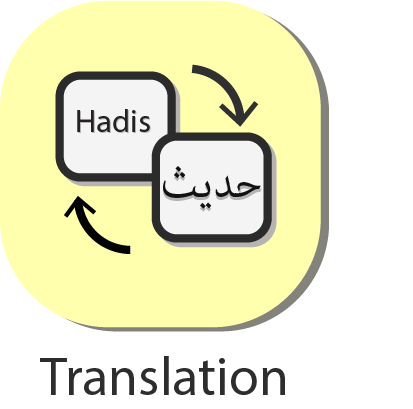



الْمُتَشَبِّهَاتِ بِالرِّجَالِ مِنَ النِّسَاءِ
وَالْمُتَشَبِّهِينَ بِالنِّسَاءِ مِنَ الرِّجَالِ
( Riwayat Ibn Abbas No : 2784 )
___________________________________________
عَنْ عِكْرِمَةَ، عَنِ ابْنِ عَبَّاسٍ،
قَالَ لَعَنَ رَسُولُ اللَّهِ صلى الله عليه وسلم
الْمُتَشَبِّهَاتِ بِالرِّجَالِ مِنَ النِّسَاءِ
وَالْمُتَشَبِّهِينَ بِالنِّسَاءِ مِنَ الرِّجَالِ
Narrated Ibn 'Abbas:
"The Messenger of Allah (ﷺ) cursed the women who imitate men and the men who imitate women."
حَدَّثَنَا مَحْمُودُ بْنُ غَيْلاَنَ، حَدَّثَنَا أَبُو دَاوُدَ الطَّيَالِسِيُّ، حَدَّثَنَا شُعْبَةُ، وَهَمَّامٌ، عَنْ قَتَادَةَ، عَنْ عِكْرِمَةَ، عَنِ ابْنِ عَبَّاسٍ، قَالَ لَعَنَ رَسُولُ اللَّهِ صلى الله عليه وسلم الْمُتَشَبِّهَاتِ بِالرِّجَالِ مِنَ النِّسَاءِ وَالْمُتَشَبِّهِينَ بِالنِّسَاءِ مِنَ الرِّجَالِ . قَالَ أَبُو عِيسَى هَذَا حَدِيثٌ حَسَنٌ صَحِيحٌ .
| Grade | : Sahih (Darussalam) |
| English reference | : Vol. 5, Book 41, Hadith 2784 |
| Arabic reference | : Book 43, Hadith 3013 |
World Islamic History : 382 H
9/3/992 - 25/2/993 CE
More...
- 1: Muharram
- 2: Safar
- 3: Rabiul-Awwal
- 4: Rabi-uthani
- 5: Jumadi-ul-Awwal
- 6: Jumadi-uthani
- 7: Rajab
- 8: Sha’ban
- 9: Ramadan
- 10:Shawwal
- 11:Zhul-Q’ada
- 12:Zhul-Hijja


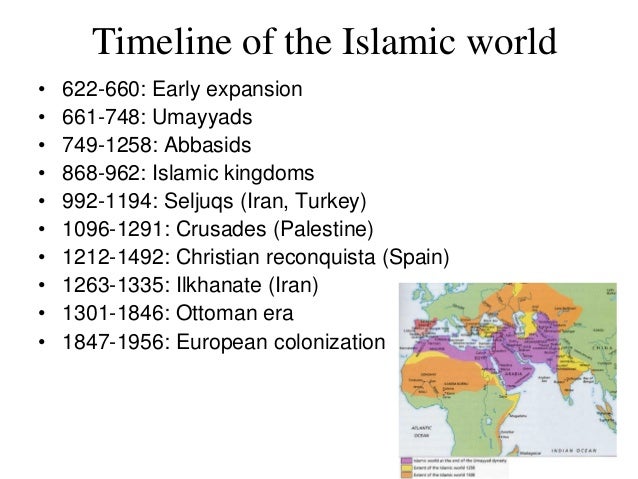


Muslim Spain phases:
1.The Al-Andalus province of the Umayyad Caliphate in Damascus (711–756)
2.The Independent Umayyad Emirate of Cordoba (756–929)
3.The Umayyad Caliphate of Córdoba (929–1031)
4.The first Taifas (1031–c. 1091)
5.The Almoravid rule (c. 1091–c. 1145)
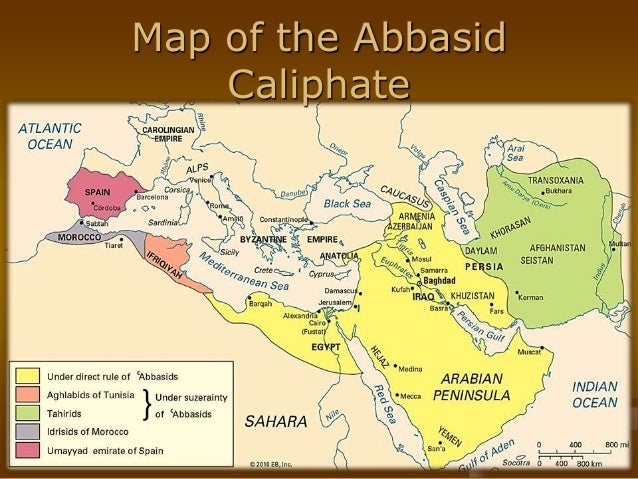

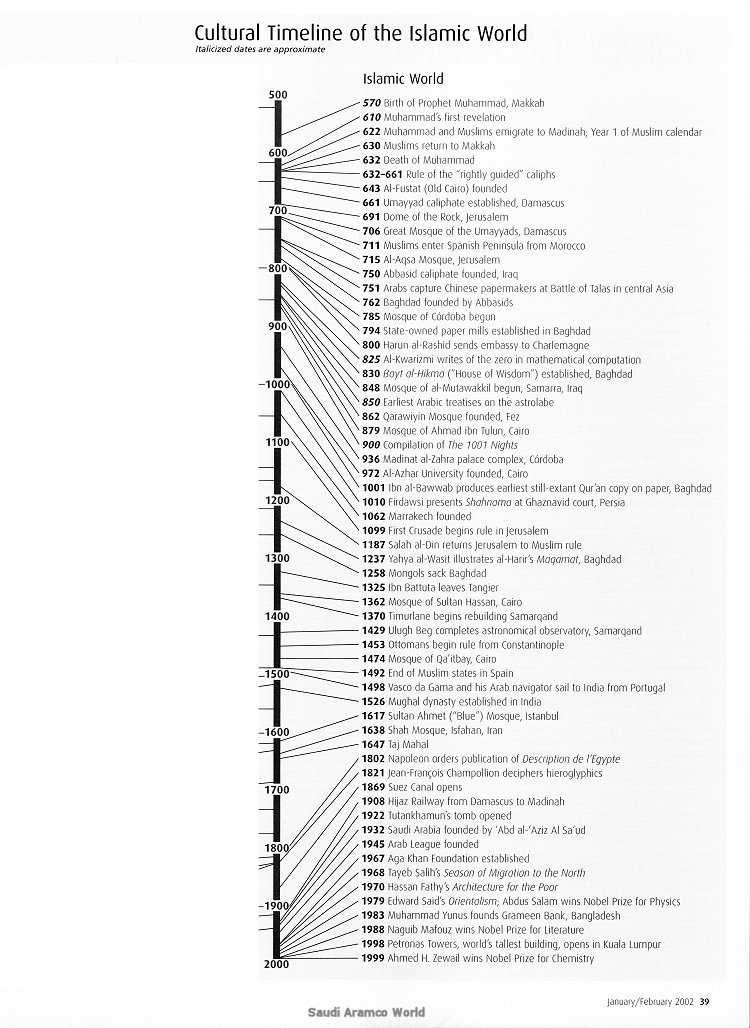
Oaxaca : Oaxaca de Juárez
Mexico

xx
_______________________________________________
back to top
_______________________________________________
_______________________________________________
back to top
_______________________________________________
_______________________________________________
back to top
_______________________________________________
Mexico

flag of MexicoNational anthem of Mexico
- OFFICIAL NAME
- Estados Unidos Mexicanos (United Mexican States)
- FORM OF GOVERNMENT
- federal republic with two legislative houses (Senate [128]; Chamber of Deputies [500])
- HEAD OF STATE AND GOVERNMENT
- President: Andrés Manuel López Obrador
- CAPITAL
- Mexico City
- OFFICIAL LANGUAGE
- Spanish
- OFFICIAL RELIGION
- none
- MONETARY UNIT
- Mexican peso (Mex$)
- CURRENCY EXCHANGE RATE
- 1 USD equals 19.139 Mexican peso
- POPULATION
- (2017 est.) 123,169,000
- POPULATION RANK
- (2017) 11
- POPULATION PROJECTION 2030
- 138,482,000
- TOTAL AREA (SQ MI)
- 758,450
- TOTAL AREA (SQ KM)
- 1,964,375
- DENSITY: PERSONS PER SQ MI
- (2017) 162.4
- DENSITY: PERSONS PER SQ KM
- (2017) 62.7
- URBAN-RURAL POPULATION
- Urban: (2015) 79.2%
- Rural: (2015) 20.8%
- LIFE EXPECTANCY AT BIRTH
- Male: (2016) 74.8 years
- Female: (2016) 79.6 years
- LITERACY: PERCENTAGE OF POPULATION AGE 15 AND OVER LITERATE
- Male: (2012) 95.4%
- Female: (2012) 93.2%
- GNI (U.S.$ ’000,000)
- (2016) 1,152,770
- GNI PER CAPITA (U.S.$)
- (2016) 9,040
- DID YOU KNOW?
-
- In Mexico, struggling artists can pay taxes with their artwork.
- Mexican warriors threw hornet nests at enemies.
- The Aztecs sacrificed people to various gods.
- In the 19th century, army officer Antonio Lopez de Santa Anna held a funeral for his severed leg.
FURTHER INFORMATION
Name of Country
Travel to ____
*video*
1.XXX
2.XXX
3.XXX
4.XXX
5.XXX
6.XXX
7.XXX
8.XXX
9.XXX
10.XXX
______________________________________________
1. XXX
Capital :
Population :
_____________________________________________
2. XXX
XXX
Airport picture
xxx
View of the city picture
Capital : xxx
The main mosque in xxx picture
xxx
___________________________________________
3. XXX
____________________________________________
4. XXX
___________________________________________
5. XXX
___________________________________________
6. XXX
__________________________________________
7. XXX
_________________________________________
8. XXX
_________________________________________
9. XXX
_________________________________________
10. XXX
_________________________________________











